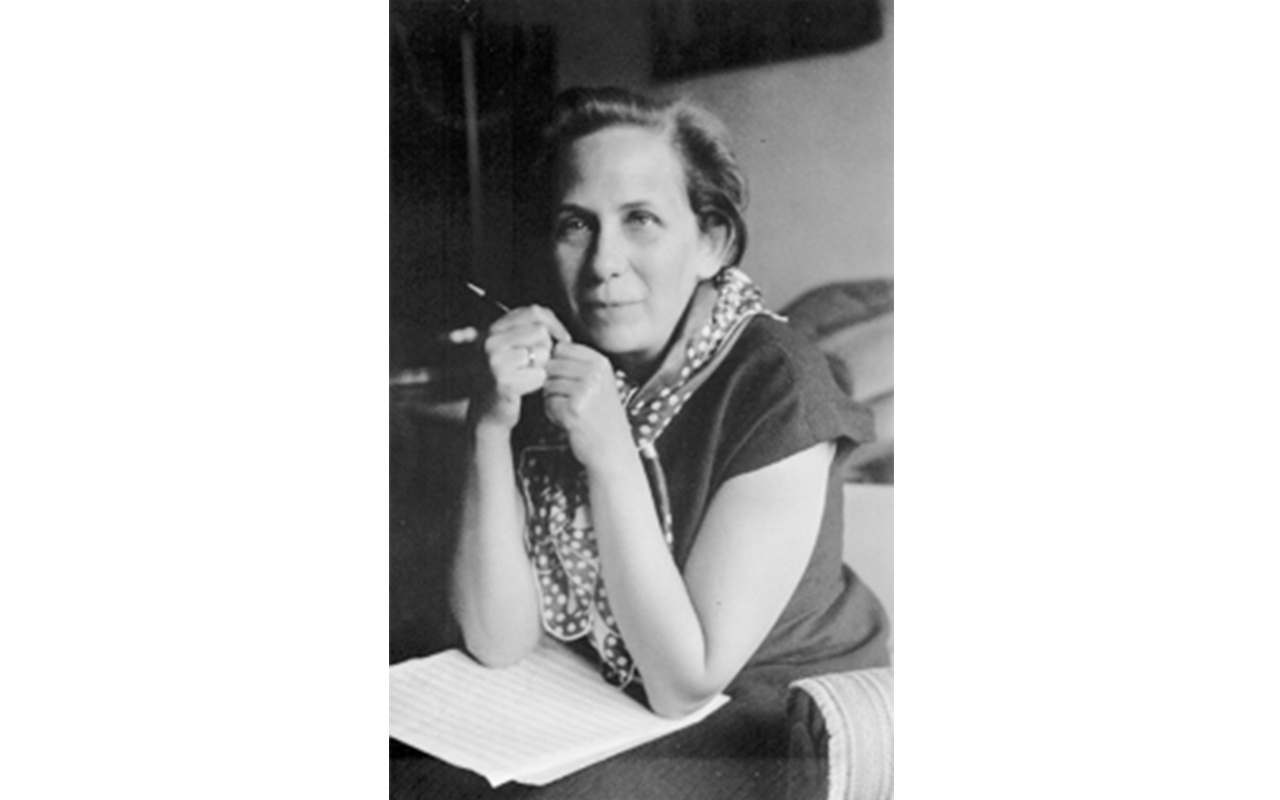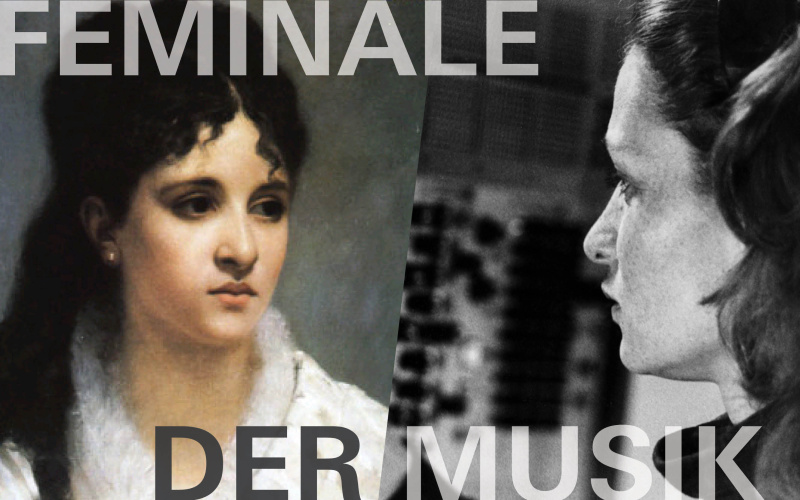Felicitas Kukuck
Feminale of Music
»Hindemith was a great teacher. [...] the most interesting and stimulating thing we learned from him was the unanimous melody! It could not be a song, not a sonata theme, not a fugue theme, but the melody 'in itself'. These investigations were the most interesting and stimulating thing I have experienced in my studies.« – Felicitas Kukuck in her autobiography, 1989
Born on November 2, 1914 in Hamburg, Germany; died on June 4, 2001 in Hamburg, Germany. Actually Felicitas Kukuck wants to study school music. Because of her Jewish ancestors, she was not allowed to do so in Berlin in 1936 during the Nazi era. Instead, she studied piano and flute there, and composition with Paul Hindemith. She is strongly influenced by Hindemith. In her autobiography she describes the great impression his teaching has made on her. Hindemith's music is soon classified as »degenerate« by the Nazis and he leaves the country. Despite this, and against the explicit advice of her piano professor, she plays a composition by Hindemith at her final examination. Even after that she remains very brave, stays in Berlin with her husband during the war and hides a Jewish woman in her own apartment. She does not want to leave Germany. »The music – the German music, the land of Johann Sebastian Bach held me tight. Here I was rooted. This is where I wanted to live. I would never have left,« she says in 1980 in a conversation with Eike Funck.
In her autobiography, Felicitas Kukuck does not go into much detail about her work as a composer. Yet she has created a body of work of over 1,000 compositions in the course of her life. Most of them are vocal compositions, written for singing circles, for church and children's choirs, but there are also many instrumental pieces, often for children. When composing, she always stays within the range of an extended tonality. She composes expressly for laymen and adapts the degree of difficulty to their abilities. Thus Kukuck deliberately positions herself outside the musical avant-garde, as cultivated in Darmstadt and Donaueschingen after the Second World War. Church music is also of great importance to Kukuck. In her sacred compositions she often deals with the »dialogue between Judaism and Christianity, between Old and New Testament«, as her daughter Margret Johannsen describes.
Compositions
Die Brücke, published by lilatraum and recorded by the ensemble »Columba in excelsis«, students of the Académie Supérieur de Musique de Strasbourg: Lilia Dornhof (soprano), Noémie Jussel (recorder) and Priska Weibel (theorbo), recorded on 28.02.2016 in the Friedenskirche in Kehl.
Psalm 126 (3:35), final chorus of the opera »The Man Moses«, published by Felicitas and sung by Felicitas Kukuck
Die Todesfuge (7:24) - motet for mixed choir and snare drum, published by and sung by the Lilienfelder Cantorei conducted by Klaus-Martin Bresgott, concert recording of November 4, 2012, Sophienkirche Berlin
Und es ward: Hiroshima (excerpt), published by Felicitas and performed by the TrinitatisChor Altona (with guests and instrumentalists) under the direction of Jörg Mall in the Christianskirche in Hamburg-Ottensen on May 4, 2013 at the 34th German Protestant Kirchentag
Interview
Dr. Beatrix Borchard and Dr. Margret Johannsen talk about their mother Felicitas Kukuck
Disclaimer
-
Links to external websites of other providers
The ZKM’s express objective is the accuracy and current relevance of any information it makes available on this web site. Mistakes and ambiguities cannot, however, be fully excluded. For this reason, the ZKM is unable to fully guarantee the current relevance, accuracy, completeness or quality of the information it makes available. The ZKM is not subject to coercible legal rules and regulations and to any kind of damages of a material or immaterial nature that may possibly be caused by the use or non-use of the information provided, including free downloads. The ZKM reserves the right to change or delete, to temporarily or permanently suspend access to the web sites at any time.
The responsibility for »external content« to which access is made, in the form of e.g., links, presupposes, among other things, positive knowledge of illegal or punishable content. The ZKM has no influence on this external content and entirely distances itself from such content. Should the displayed external web site include unlawful or offensive content, the ZKM expressly distances itself from such content. When made knowledgeable of such content, the ZKM will deactivate the corresponding link. The same holds for external entries contained in Blogs and discussion forums, links directories, mailing lists and all other forums of databanks operated by the ZKM, the content of which is rendered possible via write access.
All content of the present web site (texts, images, video stills, videos, audios, graphics etc.), the structure as well as the layout of this web site is protected by copyright. These contents, and the information made available by the ZKM (e.g., text and image materials) are available exclusively for individual usage by users of this web site, and not for commercial purposes. These contents may be distributed and copied, made public on the Internet and used for commercial purposes only with the prior consent of the ZKM. Similarly, the placing of deep links, inline links, frame links or similar links in which the ZKM web site is not clearly evident as source, is permitted only with the prior consent of the ZKM. Messages and references to content »share« in social media (e.g. Facebook) do not come under the proviso of this reserve approval. For press releases and photographs valid instructions for usage can be found at: www.zkm.de/en/press/service.
All labels and trademarks named and protected by third parties are subject to the unreserved stipulations of the respective registered owners. That trademarks are not protected by third part rights cannot be assumed merely by mention of the name.
This disclaimer is to be understood as part of the ZKM’s Internet content. In so far as part or single formulations of this text do not, are no longer or are do not entirely correspond to this legal provision, the remaining parts of this document remain unaffected in its content and validity.

